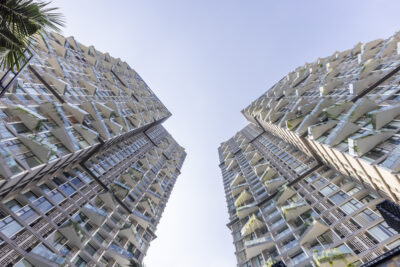APAC prime office rents decline but signs of stabilisation are seen, plus other headlines

For PropertyGuru’s real estate news roundup, the decline in regional prime office rents continues, but signs of stabilization suggest some areas weather challenges more effectively. In other news, Southeast Asia and India will benefit from companies seeking to diversify their manufacturing capabilities beyond China. Lastly, smaller ‘edge’ data centres could provide new investment opportunities in Seoul.
APAC prime office rents decline in Q2 2024, but signs of stabilisation emerge – Knight Frank
Global property consultancy Knight Frank’s Asia-Pacific Prime Office Rental Index for Q2 2024 shows a 3.1 percent year-on-year decline in regional prime office rents, marking a marginal improvement from the 3.2 percent drop in Q1. Although this extends the downward trend to eight consecutive quarters, the slight stabilisation suggests that the regional office sector may be approaching a turning point amidst ongoing challenges.
RETalk Asia reports that while the overall trend remains downward, 15 of the 23 monitored cities reported stable or increasing rents year-on-year, mirroring the figures from Q1 2024. This resilience in select markets suggests that some areas weather the regional challenges more effectively. Additionally, the regional vacancy rate stabilised at 14.8%, halting an upward trend that had persisted since Q3 2022, indicating a potential levelling off in the market.
Supply chain shifts to drive more manufacturing to Southeast Asia and India – JLL
The next decade will accelerate shifting supply chains whereby manufacturing and production locations will diversify to multiple locations across Southeast Asia and India. According to JLL, Southeast Asia and India stand to be net beneficiaries of companies diversifying manufacturing capabilities to complement existing bases in China, however, companies will need to be flexible when considering locations and funding options to take advantage of volatility in supply chains.
Over the past few years, companies have begun exploring relocating manufacturing outside of China. In Asia Pacific, this near/re/friend shoring trend has resulted in the China+1 strategy where companies add additional manufacturing bases outside of China to hedge against supply chain disruptions by reducing reliance on a single country.
Gaining an edge in the Seoul data centre market
Smaller ‘edge’ data centres could provide a new investment opportunity in Seoul, even as the city struggles to meet the huge demand for data centres. In response to demand from e-commerce, AI and cloud operators, the Seoul Metropolitan Area will see data centre capacity more than double by 2027.
However, Savills research shows that more than half of the 33 approved projects for data centre development in the Seoul Metropolitan Area are facing challenges or delays. Key issues include difficulty in locking in operators, delays in approval due to resident complaints, and construction setbacks. At the same time, demand is also growing for edge data centres, which could offer an opportunity for real estate investors.
JoAnn Hong, Senior Director, Research & Consultancy, Korea at Savills, says: “Amid challenges with the supply of large-scale data centres, the rise of edge data centres is expected to redefine the market, driven by the growth of advanced industries.”
The Property Report editors wrote this article. For more information, email: propertyreport@propertyguru.com.
Recommended
Dewan Architects’ Mohammed Adib leads with human-centred design and technological innovation in the Middle East and beyond
Mohammed Adib channels his childhood curiosity and dislike for design uniformity into his work at Dewan Architects + Engineers
UAE real estate shifts focus to sustainability and quality, revitalising iconic projects
The UAE has risen from its challenges to emerge as a more sustainable, quality-focused destination
Exploring A Life By Design’s maximalist approach to interior design
Andrea Savage is embracing the maximalist trend with bold and vibrant interior designs
Jakarta’s emerging innovation hub integrates tech and healthcare sectors
The Digital Hub in BSD City is being positioned as Indonesia’s counterpart to Silicon Valley








